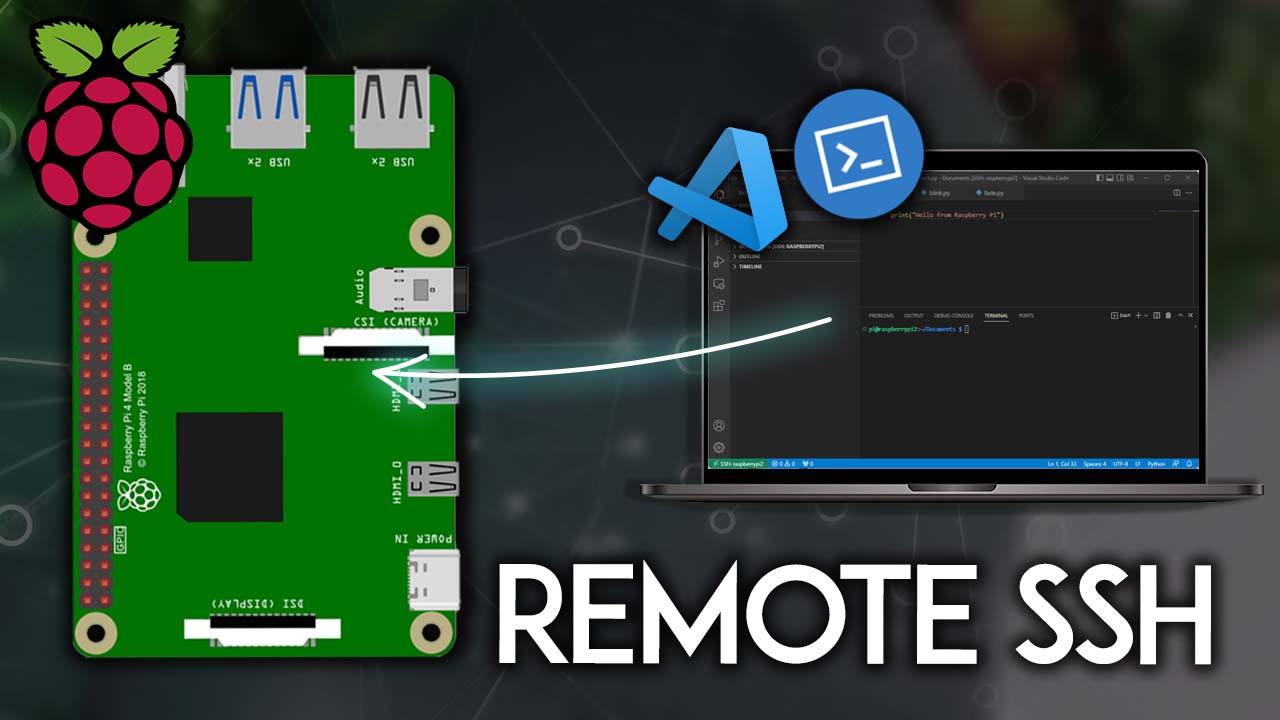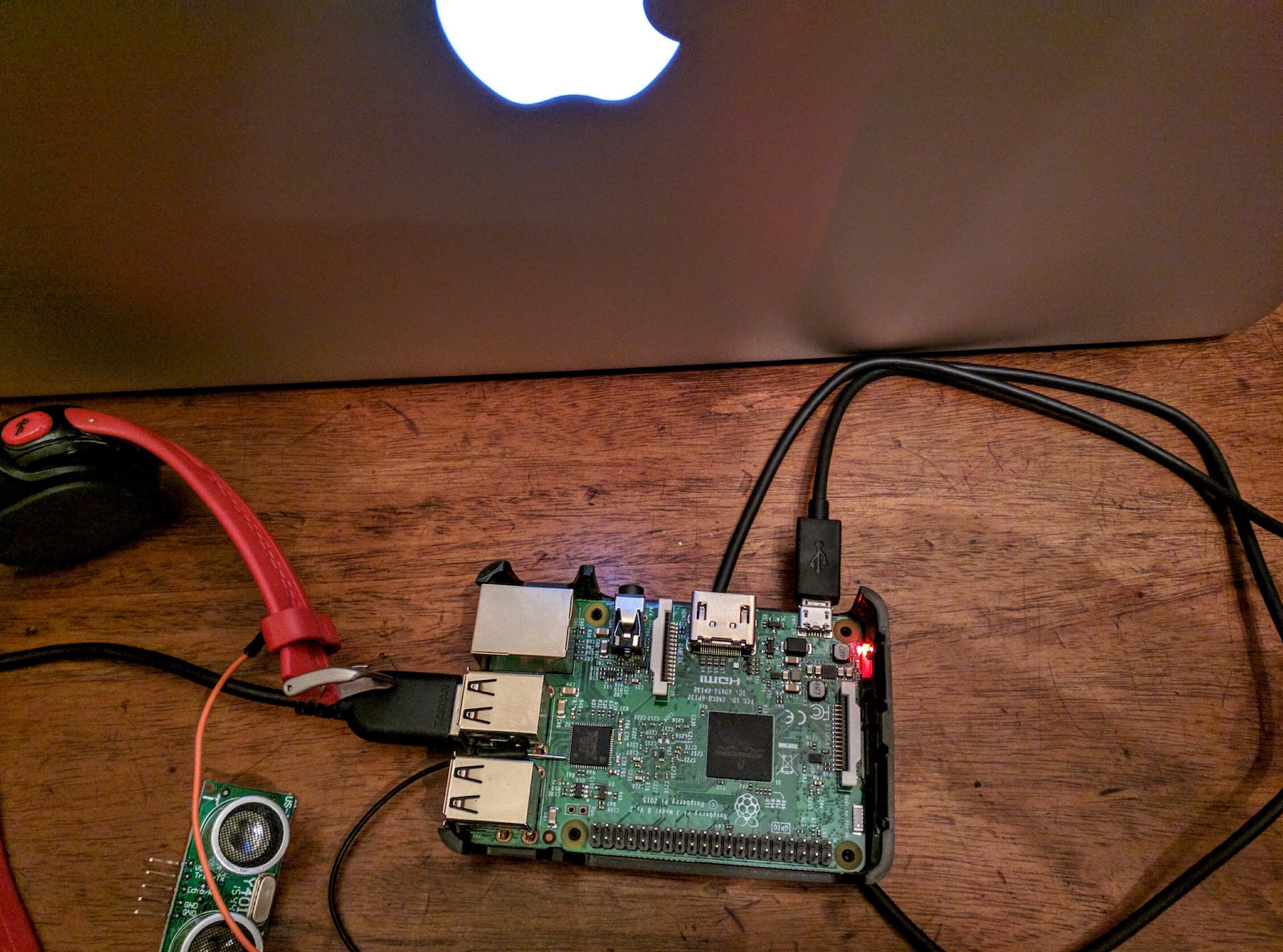Unlocking Raspberry Pi IoT: Best SSH Platforms & Key Setup
Are you striving to unlock the full potential of your Raspberry Pi in the realm of the Internet of Things? The convergence of Secure Shell (SSH) and IoT platforms on a Raspberry Pi presents a powerful avenue for secure and efficient remote management and control, and finding the best one can dramatically enhance your project's capabilities.
In a digital landscape where connectivity is paramount, the ability to remotely access and manage your Raspberry Pi projects is no longer a luxury, but a necessity. This is especially true within the context of the Internet of Things (IoT), where devices are often deployed in remote locations, requiring secure and reliable remote administration. SSH, or Secure Shell, provides the foundation for secure communication over an unsecured network. This protocol encrypts data transmitted between devices, ensuring that your communications remain confidential and protected from eavesdropping. Paired with a suitable IoT platform, SSH allows you to remotely configure, monitor, and troubleshoot your Raspberry Pi, streamlining your workflow and increasing the robustness of your projects. The selection of the right platform is, therefore, critical to the success of any IoT deployment.
Before delving into the specifics of various platforms, it's important to understand the underlying principles. The core of secure remote access lies in the implementation of SSH key authentication. This method uses cryptographic keys, instead of passwords, to verify your identity. SSH keys are significantly more secure than traditional password-based authentication, as they are resistant to brute-force attacks. Setting up SSH keys is the first step in fortifying your Raspberry Pi's security posture, and it paves the way for a robust and reliable remote management solution.
- Trudeau Joly Rumors Swirl After Split Whats The Truth
- Faith Hills Diagnosis The Latest News What It Means
The world of IoT is constantly changing, new platforms are constantly emerging, and each offers a different approach to managing your Raspberry Pi devices. The challenge lies in selecting the right platformone that aligns with your specific project requirements, security needs, and technical proficiency. Evaluating factors like features, ease of use, scalability, and community support can help you make an informed decision. Considering the projects goals and how each platforms functionality can help you achieve them will ensure an efficient and well managed setup.
To truly understand the advantages of an SSH-based IoT platform, consider the alternatives. Without secure remote access, you would be forced to manually interact with your Raspberry Pi, a cumbersome and time-consuming task, particularly if your project is deployed in a remote location. Additionally, without SSH, your Pi becomes vulnerable to network security breaches, exposing sensitive data and compromising your project's integrity. As such, the integration of SSH keys becomes a foundational aspect of a secure IoT implementation.
Now, let's focus on testing the functionality of your SSH keys. After setting up SSH keys on your Raspberry Pi, the most critical part comes down to verifying the operation of the secure connections. You can then verify by testing it, using the following command to log in to your Raspberry Pi, assuming your Raspberry Pi's IP address is known. This step is essential for ensuring that everything has been correctly configured and that you are able to successfully connect to your device remotely: ssh pi@your_raspberry_pi_ip_address. If you're presented with a password prompt, it means there's an issue. If the process works flawlessly, you'll be connected to your Raspberry Pi, ready to execute commands and begin managing your device remotely. If you encounter problems during setup, consider reviewing your steps or consulting the platforms documentation for detailed solutions.
- Is Jay Leno Alive Debunking The Did Jay Leno Pass Away Rumors
- Remoteiot Vpc Your Iot Networks Secure Speedy Future
However, even with SSH in place, ensuring your projects safety relies upon best practices. One of the most significant aspects of securing your SSH connection involves the management of the keys themselves. Safeguarding your private key is of utmost importance. Any breach of your private key could lead to unauthorized access to your devices. Always keep your private key secure and avoid storing it on a public or shared computer. Consider using a password manager or a hardware security module to securely store your private key. Also, regularly update your operating system and software packages. Software vulnerabilities can create openings for unauthorized access. Keep your system current, and install security patches promptly. Lastly, be mindful of network configurations. Implementing a firewall and securing your network can provide an additional layer of protection for your Raspberry Pi.
In the dynamic environment of the Internet of Things, where security breaches can have far-reaching consequences, the use of SSH keys provides a powerful shield against threats. By adopting best practices for SSH key management and incorporating security measures into your IoT deployments, you can significantly minimize vulnerabilities and ensure the confidentiality and integrity of your data.
Choosing the right IoT platform that offers SSH support is essential for a successful and secure project. While the specific features and user interfaces will vary from platform to platform, they share the common goal of providing secure, remote access and management capabilities for your Raspberry Pi. Selecting the platform that aligns with your project requirements, your level of technical expertise, and your overall security priorities is an important decision. Take the time to evaluate your options to make sure your IoT project is secure, efficient, and ready to scale.
In the rapidly evolving world of internet of things (iot), selecting the best remote iot platform for your raspberry pi project is crucial for success. To wrap it up, choosing the best remote iot platform that supports ssh key authentication for your raspberry pi is key to building secure and efficient iot projects.
By understanding the features, benefits, and best practices of these platforms, you can make smart decisions that align with your project goals.
Setting up SSH keys is just the beginning of the journey.
The ability to remotely manage your Raspberry Pi, through SSH, is a game changer in the realm of IoT. It allows you to access your device from anywhere in the world with an internet connection, enabling you to monitor sensor data, deploy software updates, and troubleshoot issues in real-time. This level of accessibility is particularly valuable when your Raspberry Pi is deployed in a remote or hard-to-reach location.
- Top Free Ssh Remote Iot Solutions For Secure Access
- Website Issues Domain Insights Latest Details Mydesi More

Best RemoteIoT Platform Raspberry Pi For Smart Innovations

Best SSH IoT Platform For Raspberry Pi Free A Comprehensive Guide

Best Remote IoT VPC SSH Raspberry Pi Free The Ultimate Guide